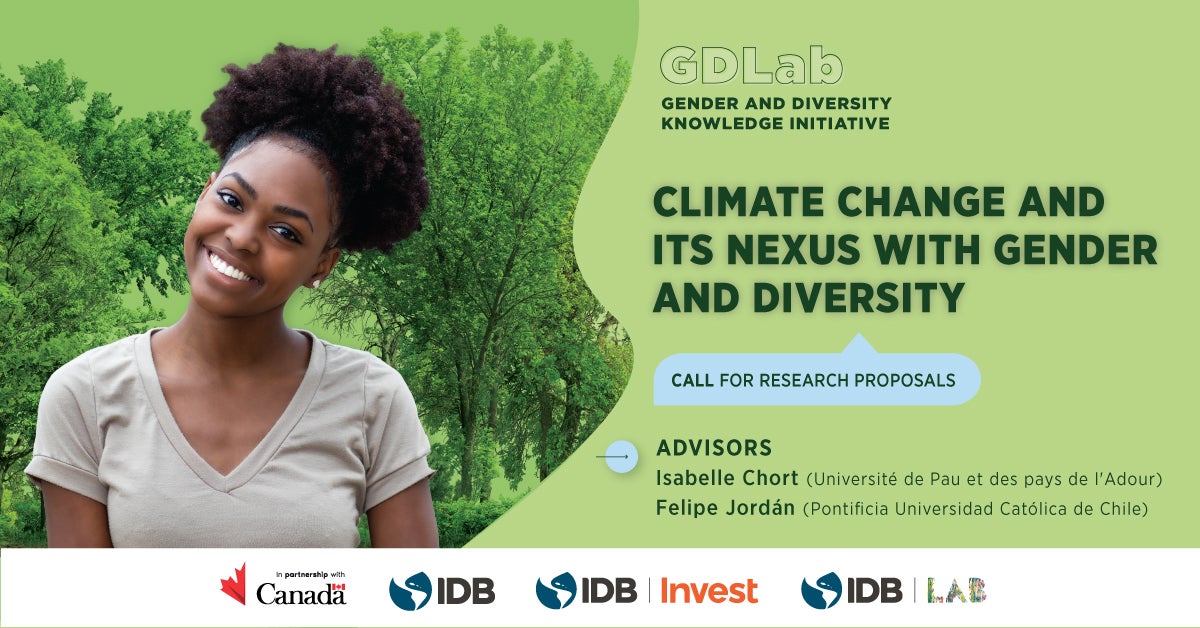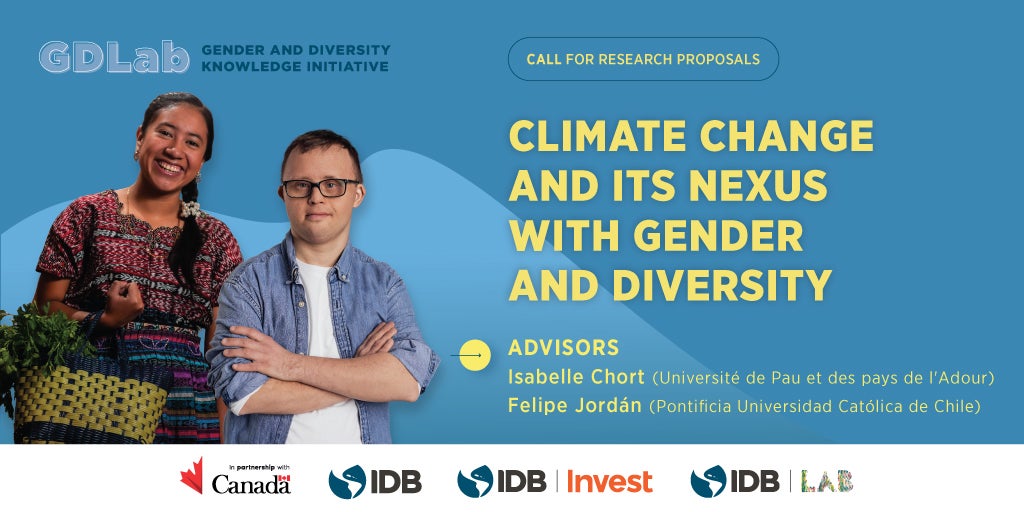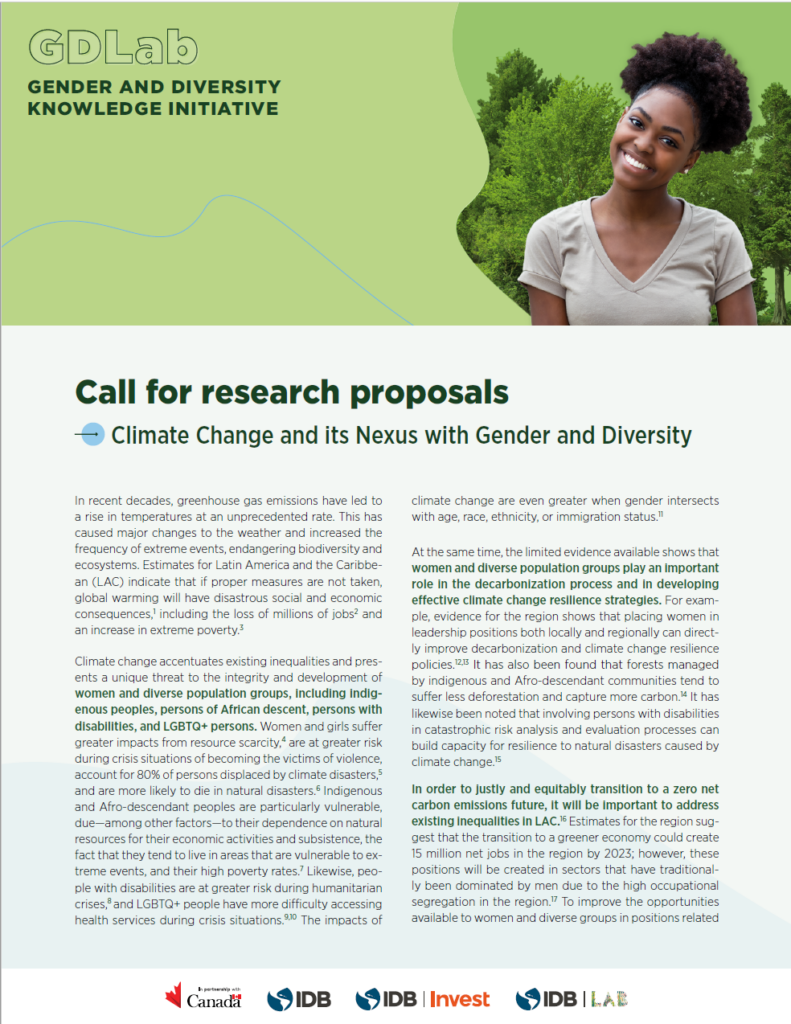What role do women and diverse groups play in climate action? How are they affected by global warming? The new GDLab call for research proposals seeks to contribute to generating knowledge to understand the challenges and opportunities at the intersection of gender, diversity, and climate change. Read more about it!
What is the connection between gender, diversity, and climate change?
Climate change affects us all, but not in the same way. The consequences of this global phenomenon threaten to increase inequalities deeply rooted in society. Women, indigenous peoples, Afro-descendants, people with disabilities, and LGBTQ+ individuals are more vulnerable to the climate crisis and have greater exposure to risk.
Women and girls, for example, represent the largest fraction of people displaced by climate disasters and are less likely to survive in natural disasters. Indigenous peoples are highly dependent on natural resources for their economic activities and subsistence and usually inhabit geographic areas that are more affected by natural disasters.
People with disabilities also face greater risks in humanitarian crises. LGBTQ+ individuals, on the other hand, have more difficulties accessing health services in times of emergency.
In short, the effects of climate change are accentuated when factors such as gender, age, race, ethnicity, or migration status interact.
Key actors in mitigating climate change
The little evidence available indicates that women and diverse groups play an important role in the decarbonization process and resilience to climate change. Ancestral knowledge for better management of natural resources and their leadership skills strengthens their role as agents for climate action.
To enhance the role of women and diverse groups as promoters of change, it is essential to generate rigorous research on gender, diversity, and climate change.
Details of the GDLab call for proposals
GDLab, the Gender and Diversity Knowledge Initiative of the IDB Group, launches a new call to finance research that contributes to the measurement and evaluation of solutions to address climate change and to promote an inclusive transition to a greener economy. This call seeks rigorous quantitative studies with policy implications that:
- Document the differentiated impacts of climate change on the well-being and development of women, indigenous peoples, Afro-descendants, people with disabilities, and/or LGBTQ+ individuals.
- Evaluate the role of these groups in climate action in terms of decarbonization and/or resilience to the effects of climate change.
- Evaluate innovative solutions to address climate change that contribute to the transition to a net-zero carbon economy that leaves no one behind.
The call is addressed to independent researchers or research teams made up of public or private sector entities, universities, or research centers, as well as IDB Group specialists associated with external teams.
Proposals will be evaluated by the Scientific Committee made up of IDB Group specialists and invited external advisors, Isabelle Chort (Université de Pau et des pays de l’Adour) and Felipe Jordán (Pontificia Universidad Católica de Chile).
Learn more about the call and the application process in the call’s informational brochure. The deadline to submit a proposal is June 14, 2023.




Leave a Reply